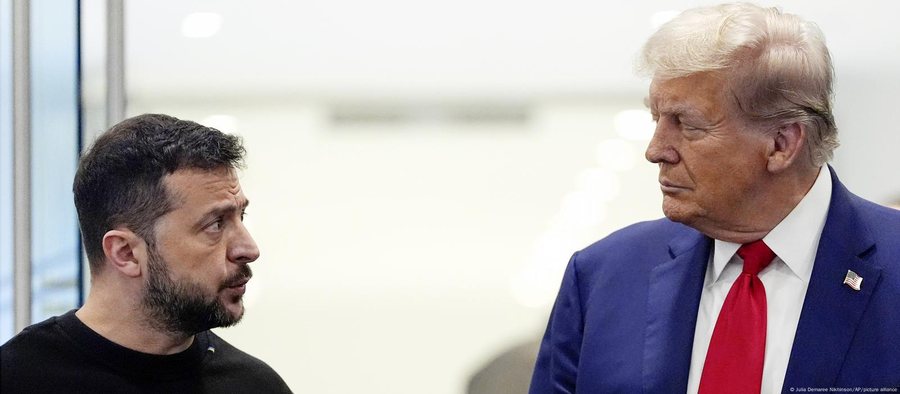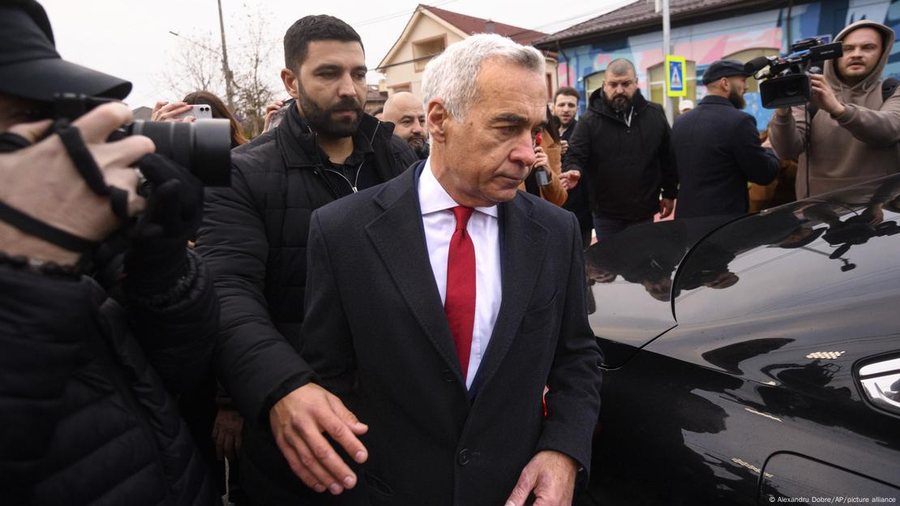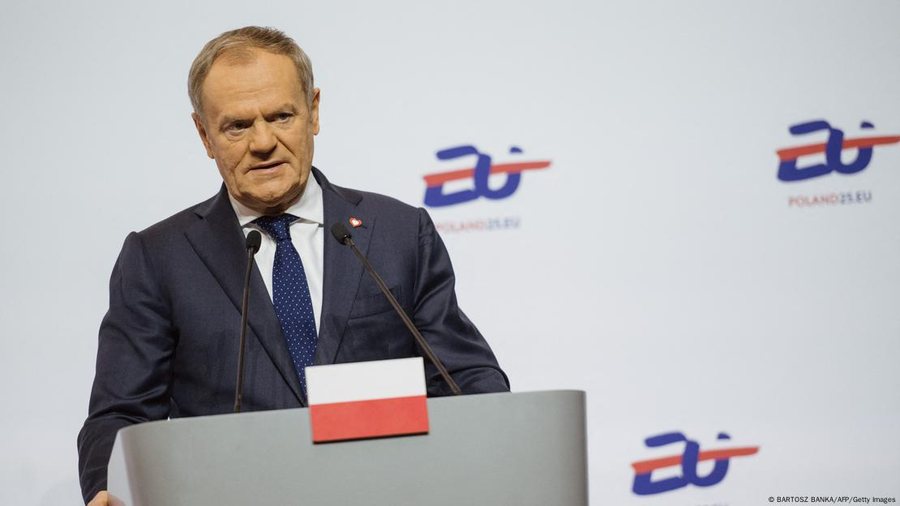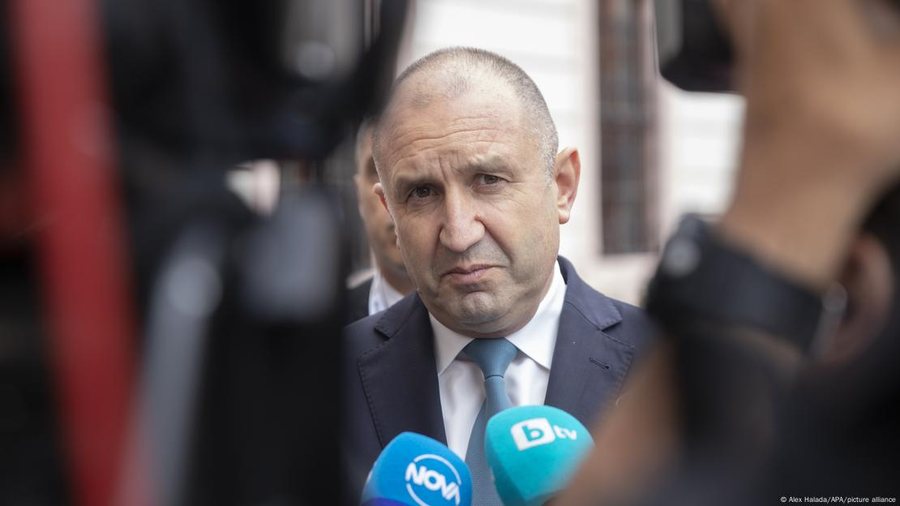
Southeastern and central European countries have been shocked by Trump's statements on Ukraine. These countries fear that they will also remain exposed to Russia. Romania even fears that a "new Yalta" is coming.
The statements of US President Donald Trump and his distancing of Ukraine and its President Volodymyr Zelensky from him are causing shock and dismay among the people of the attacked country. But the fear is also spreading in the countries of southeastern and central Europe that they may once again be defenseless against Russia.
Almost all peoples and nations in this region, as well as Ukraine, have suffered severely under the imperial policies of the Russian Empire and later the Soviet Union – a trauma that has its roots centuries ago and that is still barely understood in Western Europe today.
Trump's distancing from Ukraine has created the deepest crisis of trust in these countries since the 1980s, when it was still unclear how the Soviet Union would react to movements for freedom and independence. Since the late 1990s, the US, within NATO, has been the most important guarantor of security in southeastern and central Europe.
Now they fear they will be abandoned, just like in Ukraine.
The highest level of alarm is currently felt among political leaders in Romania. The head of the Romanian presidential cabinet, Cristian Diaconescu, accuses Russia of proposing to the US a "new Yalta" and the withdrawal of US troops from Romania at the Riyadh meeting of foreign ministers.

Prominent Romanian intellectuals, including political scientist Vladimir Tismaneanu, described the Riyadh meeting as a "betrayal" of Ukraine and Western values, as well as "a new Munich." In the Munich Agreement of September 30, 1938, the German Reich, France, Italy, and Great Britain, without the participation of Czechoslovakia, decided to secede the Sudetenland region and transfer it to the German Reich.
Musk supports the far-right in Romania
The harsh reactions have an understandable reason: As in the case of Ukraine, the US government accuses Romania of being an undemocratic country. Specifically, US Vice President JD Vance accused Romania last week at the Munich Security Conference of acting undemocratically by annulling the presidential election.
Tech billionaire and Trump confidant Elon Musk, for his part, supports the far-right and pro-Russian presidential candidate Calin Georgescu, who calls for the dismemberment of the Ukrainian state and its division between Russia, Hungary and Romania.
Georgescu won the first round of the presidential election in November 2024. This round was canceled due to illegal financing of Georgescu's electoral campaign and suspicions of Russian interference in his favor. There is evidence of illegal financing, but there is no evidence of suspicions of Russian interference. Musk praised Georgescu on Tuesday (18.02.2025) on the X platform with the words: "Romania deserves its sovereignty!"
"Sovereignists" against the right to defend the country
Romania is the most important defensive base for US and NATO troops in southeastern Europe and is home to the region's missile shield. On the other hand, Romania, along with its neighbor, the Republic of Moldova, is itself militarily affected by Russia's war against Ukraine.
Russian drones are constantly falling or exploding in Romanian and Moldovan territory. Russian missiles are also constantly entering the airspace of both countries.
On February 19, 2025, Romania passed a law allowing the shooting down of such drones. The three far-right parties in parliament, which heavily use the bellicose term "national sovereignty" in their propaganda, voted against the law.
Romania's acting president, Ilie Boloian, and prime minister Marcel Ciolacu were more reserved in their statements. However, Boloian links Romania's fate to that of Ukraine: "Ukraine's security is also the security of Europe and Romania," Boloian said. "We stand by Ukraine not only for humanitarian reasons, but also because it is in our strategic interest."

Tusk's dramatic message
The governments of other Central and Southeastern European countries are also currently responding by declaring their unlimited solidarity with Ukraine. Polish Prime Minister Donald Tusk writes dramatic appeals to X almost every day.
He commented on Trump's negotiations with Russia with the words: "An imposed capitulation of Ukraine would mean a capitulation of the entire Western international community."
In the framework of the Munich Security Conference he posted the statement: "As a tourist I love the city. As a historian and politician today I can only say: NEVER AGAIN. MUNICH" He also recalls the words of Pope John Paul II - "Do not be afraid!" - which were an "Encouragement of Poles in the fight against Russian rule".
Czech President Petr Pavel writes on Wednesday (20.02.2025) in X that calling the Ukrainian president a dictator requires "a strong dose of cynicism." Lithuanian President Gitanas Nauseda calls in X: "We must act now, to support Ukraine and strengthen Europe's security. There is no more time for words, we must act."
Nauseda has presented a six-point plan that should pave the way for greater European independence in defense and security policy and for aid to Ukraine. The plan provides for some of the strictest sanctions against Russia. Other countries in the region are also calling for more investment in a common European defense.

Three countries against support for Ukraine
The reactions of political leaders in Bulgaria, Slovakia and Hungary are different from what was expected. In Bulgaria, the president is Rumen Radev, a pro-Russian, who is not as friendly to the Kremlin as Hungary's Viktor Orban, but who constantly minimizes Russian aggression in Ukraine and speaks out against support for Ukraine.
Radev welcomes Trump's "peace initiative" and urges the government and parliament to decide against sending soldiers to Ukraine - a topic that is currently not on the agenda in either Bulgaria or the EU.
Until now, governments in Bulgaria have consistently supported Ukraine militarily. It is unclear what the position of the coalition that has been governing in Sofia since mid-January will be. This coalition has three parties in its ranks, two of which are pro-Russian, isolationist, and the government is divided over the Ukraine issue.
In the case of Slovakia and Hungary, it is clear that no solidarity initiative for Ukraine is being taken, let alone any initiative for better European self-defense. Slovak Prime Minister Robert Fico made it clear that his country has no reason to participate in meetings like the last one in Paris. "Friends of war" meet there, Fico said, and "we have nothing to do with this." /DW/ (A2 Televizion)














